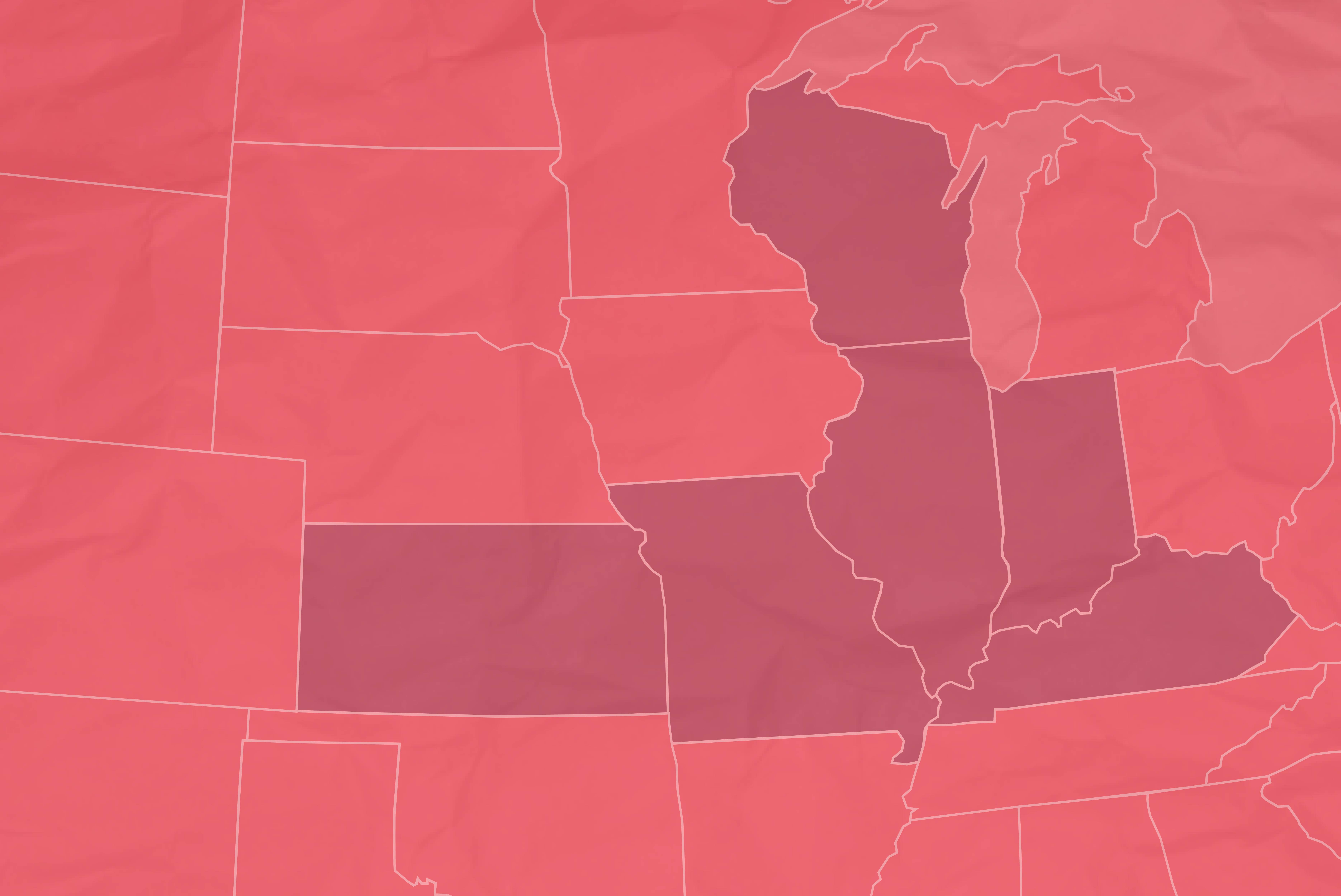Oral Testimony of Nora Collins-Mandeville
Director of Systems Reform Policy of the ACLU of Illinois
Before the Senate Health Committee
Subject Matter Hearing re: DCFS Worker Safety
February 1, 2022
My name is Nora Collins-Mandeville, and I am the Director of the Systems Reform Policy of the ACLU of Illinois.
Thank you Chairperson Morrison, Vice Chair Joyce, and Minority Spokesperson Syverson for the opportunity to speak with the committee today.
The tragic deaths of DCFS Investigators Silas and Knight demand focus on thoughtful interventions to improve field safety. The workforce, and the children and families who count on that workforce, deserve nothing less.
As you know, the ACLU is well-acquainted with DCFS’ history when faced with systemic issues that receive significant outside attention, including from the media. That history includes instances of child deaths, inadequate service to youth with high-level needs, and workforce shortages. There are consistent commonalities in DCFS’ responses:
- The Department fails to engage in a serious root-cause analysis based on data.
- The Department convenes meetings with stakeholders but rarely accepts stakeholder input as valid or incorporates it in collaborative problem-solving.
- The Department fails to assess unmet needs, and thus cannot competently address resource allocation.
In short, rather than undertaking bold, proactive steps to fix its own operations based on evidence-driven, best practices, the Department is reactionary and looks for ways to shift the narrative to what others must do to address the problem at hand.
Unfortunately, we hear more of the same in DCFS’ response to the loss of life and the resulting secondary-trauma in the spotlight now. We hear DCFS supporting the idea that workers should and would be protected through a law change to enhance criminal penalties for attacks on staff. That is no solution. It is a distraction that does nothing to address worker safety or prevent any more children from witnessing a family member brutally attack a DCFS worker sent to their home in the name of helping them.
As someone who is a long-term Council on Accreditation reviewer, I can tell you any responsible employer knows mitigating worker safety risks must be a priority for leadership not only in words, but in action. A safety-oriented workplace culture is one where effective prevention and mitigation strategies are woven into everyday decisions as a result of cohesive policies and effective policy implementation that’s paired with training tailored to specific roles and functions. Organizations with these cultures do more than address policies and training; they regularly evaluate whether their policies and trainings yield the anticipated outcomes and routinely realign those based on data analysis and regular employee and contractor feedback. This involves efforts like incident debriefing --- not only when an incident occurs but also when an incident almost occurred --- so staff can evaluate the situational factors, rationale for actions considered and undertaken compared to those that were not, and what can be learned for future application. Additionally, incidents and near incidents are also monitored and analyzed in aggregate for trends and identification of systematic factors, which is typically done on a quarterly basis and annually to evaluate global progress and setbacks. This assessment involves all levels of management and the frontline. In instances where an organization utilizes contractors to perform direct service functions --- as DCFS --- contracted entities’ management and frontline are part of the review team. It’s also vital to include customer voice as perceptions can greatly influence interactions, but also because these voices share practical ideas. For DCFS, that would mean incorporating feedback from youth, families, and substitute caregivers. All of this yields better decisions and instills confidence that leadership is invested in addressing actual risks.
Could this be any more vital in an agency like DCFS where child welfare professionals are tasked with the weighty responsibility of investigating accusations that a child is being harmed by family, and removing children from a home if they are in imminent danger of harm?
The nature of this work can at times place child welfare professionals in uncomfortable situations where their physical and emotional safety may be at risk. These professionals are often engaging with people who are strangers to them and in geographic locations potentially unfamiliar to them. Proper safety precautions, supports, and training must be put in place to contend with a myriad of factors that pose risks to staff safety including:
- Potentially unsafe work environments or circumstances during home visits
- Family members with untreated and/or current substance use disorder or mental health issues
- Rendering government-mandated interventions during family crisis
- Insufficient organizational and supervisory support to ensure worker safety
As a result of the unnecessary deaths of child welfare professionals such as Pamela Knight and Deidre Silas, a group[1] of dedicated child welfare advocates and service providers came together to develop recommendations for legislators who want to promote the safety of the child welfare workforce, which includes staff of the Department of Children and Family Services (DCFS) and Purchase of Service (POS) agencies, and the families with whom they interact.
The legislature should consider changes to:
- mandate that DCFS implement and adhere to a Worker Environmental Risk Assessment Protocol, an objective pre-visit worker environmental safety assessment/decision-making matrix meant to allow a worker and supervisor to assess their own risk and safety and make any precautionary decisions prior to initiating an investigation or home visit, based upon all available information about the current situation the worker may be entering.
- require workers to have access to an array of individuals trained and experienced in de-escalation and provision of clinical care who can accompany child welfare professionals in response to any specific and acute safety risks or needs identified.
- require DCFS to take concrete, measurable actions to address DCFS/POS workforce challenges – worker recruitment, retention, and turnover – such as those recommended by the statutorily established Child Welfare Workforce Task Force.[2]
- require DCFS to provide specific in-person enhanced training to mitigate risk to child welfare professionals and provide additional and effective tools for the Department, supervisor, and/or workers to ensure their safety. In-person training is vital. Failure to do this --- even in a pandemic --- is unacceptable. DCFS’ frontline responds in-person to abuse and neglect during a pandemic so it’s inexcusable to say to those very workers: your work is vital to perform in-person, but preparing you with experiential, simulation, hands-on training to practice ways to keep you safe while you do that job can be done from behind a computer screen.
- DCFS must address training for supervisors to develop proactive and reflective supervision techniques related to safety discussions specifically for supervisors to implement in supervision to provide skill development for line-staff and protocol to determine who should accompany the worker on an investigation/visit (i.e., another seasoned staff, a mental health crisis counselor, or substance use healthcare practitioner).
- DCFS must enhance its training materials, methods, and protocols to equip child welfare workers with the necessary tools to identify and respond to needs and/or risks that arise as they engage in their work in the field. This includes adding education and practical components to the simulation (SIM) trainings[3] for child protection staff related to assessing and de-escalating risk/safety concerns, increasing environmental awareness for personal safety techniques in a variety of settings, and applying cultural competence in a variety of anticipated interaction(s). Training enhancements need to cultivate emotional intelligence using role play and other techniques to understand and process situations and environmental contexts as they develop, as well as address how workers and supervisors can navigate and process secondary trauma staff are exposed to in the field.
Unfortunately, we hear more of the same in DCFS’ response to the loss of life and the resulting secondary-trauma in the spotlight now. We hear DCFS supporting the idea that workers should and would be protected through a law change to enhance criminal penalties for attacks on staff. That is no solution. It is a distraction that does nothing to address worker safety or prevent any more children from witnessing a family member brutally attack a DCFS worker sent to their home in the name of helping them.
Finally, our coalition strongly recommends that the General Assembly NOT pass laws that will create a false sense of security that action is being taken when those actions actually will not improve worker safety. That includes laws that adopt failed policies like enhancing penalties, for studies have shown again and again that such measures have no deterrence benefit. Likewise we do not support measures that would authorize investigators or other child welfare workers to be armed at work, as adding weapons into potentially tense and traumatic situations generally serves only to escalate safety risks, not diminish them.
There are many actions DCFS can and should take to better protect workers and DCFS needs to put in place safety measures that caseworkers and investigators have been asking for to protect their safety. A law simply enhancing penalties effectively would give DCFS a pass from undertaking the hard work of improving worker safety.
Those of us who have faced the difficult decision of separating a family in response to child abuse or neglect know firsthand that making the best decision possible requires quality information and expertise enhanced through practical, accessible training. We also know that you learn from each situation, including those situations that didn’t lead to desired outcomes. Why shouldn’t the frontline expect --- and be able to count on --- DCFS to do the same when it comes to their safety and ability to be successful?
They should and the General Assembly can make that possible. The tragic murders of DCFS employees Deirdre Silas and Pam Knight have created a justified sense of urgency to address real problems around worker safety at DCFS. Actions matter. Doing something isn’t the same as doing something that works.
Thank you.
[1] Coalition members include the Illinois Collaboration on Youth, ACLU of Illinois, National Association of Social Workers – Illinois Chapter, Shriver Center on Poverty Law, ChildLaw Policy Institute at Loyola University Chicago School of Law. See complete recommendations: https://www.aclu-il.org/sites/default/files/cw_worker_safety_1.28.22_4_0...
[2] In December 2020, the Child Welfare Workforce Task Force provided recommendations that DCFS has yet to act on to address workforce shortages and job stress that contribute to unsafe working conditions created by high caseloads, constant staff turnover, worker burnout, worker exposure to secondary trauma, and failure to provide supportive supervision for frontline staff. The recommendations included effectively implementing post-secondary financial aid stipends for students committing to work in the child welfare system; reducing duplicative, bureaucratic administrative work that detracts from working with families; developing and supporting frontline supervisors; implementing casework teams that include paraprofessionals; increasing collaboration between workers and the courts; addressing frontline pay disparity between DCFS and POS agencies; addressing racial and ethnic disparities in workforce; and, DCFS adopting a trauma-informed agency culture.
[3] In 2015, the University of Illinois-Springfield (UIS) rehabbed an unused house on their campus to serve as a mock residence to develop SIM training for child protection investigators. This training is provided by the Child Protection Training Academy (CPTA), a program developed at UIS and sponsored by DCFS. The use of the SIM training lab started in February 2016 and was expanded in February 2019 in Chicago. The SIM training creates a realistic home-like setting meant to create a scenario with likely practice implications. The mock residences simulate a family’s home with environmental hazards presenting child safety concerns. A review of the SIM lab training curriculum shows that child protection investigators are not trained in de-escalation techniques and are not trained on how to respond to combative or dangerous behavior.
Date
Wednesday, February 2, 2022 - 3:15pmFeatured image

